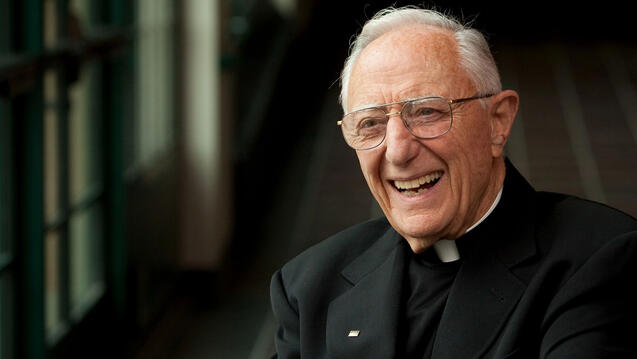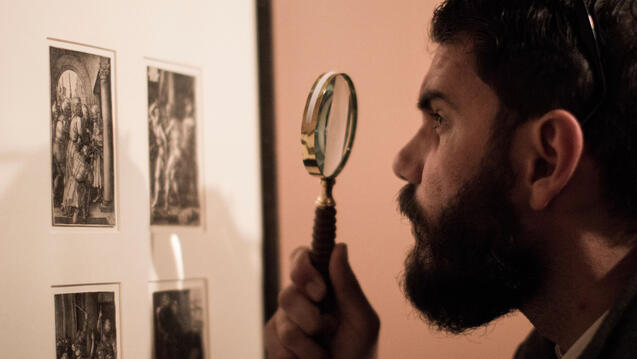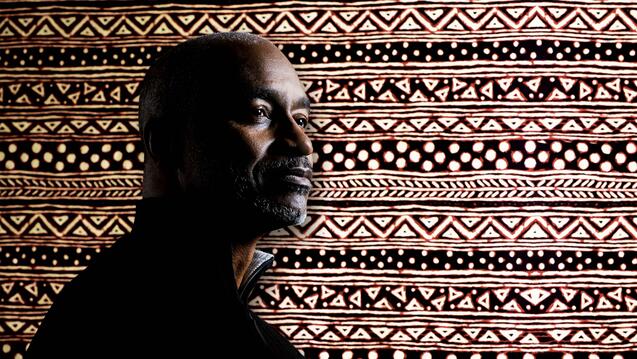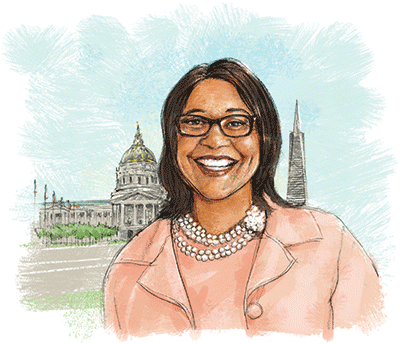
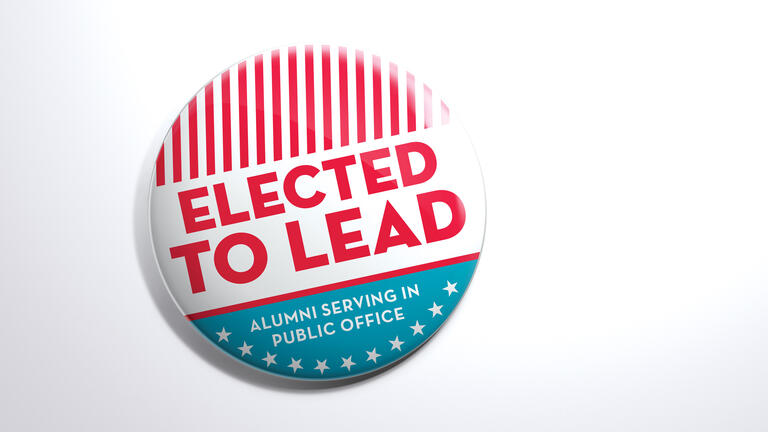
Elected to Lead
USF alumni hold public office across America. They exert power and influence and make vital decisions that can affect our lives. Here are six USF graduates who are changing our world as elected leaders.

London Breed
President, San Francisco Board of Supervisors
London Breed MPA ’13 grew up about a mile from the USF campus but a world away. Her grandmother raised her in public housing, near the corner of Eddy and Laguna streets, amid gang violence, poverty, and drug use.
Today, she’s president of the San Francisco Board of Supervisors, elected by her fellow supervisors in January. The day after that vote, the San Francisco Chronicle wrote:
“Breed has made a name for herself as a blunt, self-assured politician who isn’t afraid to buck political allies, such as when she took on Mayor Ed Lee over dismal ambulance response times last year and her consistent support of a city-run clean power program that’s opposed by many of the city’s most influential business interests.”
A supervisor for two years, Breed says her biggest accomplishment has been to shine a light on substandard public housing in the city and to begin improving it—and people’s lives—in the process. She says many problems, such as broken elevators and rundown units, don’t need legislation, just a good plan and resources.
She knows this from experience. Before she was a supervisor, Breed was executive director of the African American Art and Culture Complex in the Western Addition. She oversaw nearly $3 million in capital improvements during her decade-long tenure, and she is credited with turning the nearly collapsing complex into a vibrant neighborhood hub for the arts.
As supervisor, Breed is now taking on graffiti, which costs San Francisco $20 million every year. She sponsored legislation that allows the city to go after repeat offenders and to use civil lawsuits to force taggers either to pay for the cleanup or to perform community service.
Breed, who earned a master’s degree in public administration from USF, says she learned more than just how government works. “USF emphasized the importance of being a compassionate person, someone who believes that my role in society is to make sure that I’m helping to uplift other people.”
Area represented: District 5, which includes Fillmore/Western Addition, North of the Panhandle, Lower Haight, Haight-Ashbury, Cole Valley, Inner Sunset, Hayes Valley, Japantown, and Alamo Square.
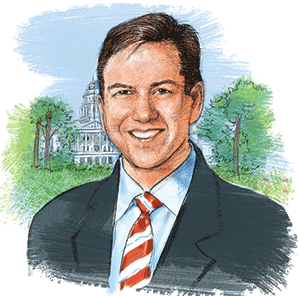
Kevin Mullin
Speaker Pro Tempore, California State Assembly
Ask Kevin Mullin ’92 about his political background, and he’ll quickly tell you that everything starts with another alumnus, his father, Gene Mullin ’60, E ’67.
As a civics teacher at South San Francisco High School, Gene Mullin taught his students that direct citizen involvement was crucial for a strong government. He then put his beliefs into action: He was elected to the city council in South San Francisco, then served as mayor, and in 2002, he won a seat in the California State Assembly.
Like father, like son.
Kevin Mullin also began his political career on the city council in South San Francisco, then served as mayor, and in 2012, he won a seat in the California Assembly. He was appointed Speaker pro Tempore of the Assembly in December 2014 and will preside regularly over floor sessions as a member of the Speaker’s leadership team.
Sixteen of Mullin’s bills have been signed into law, including measures that exempt state residents from paying taxes on any solar energy they generate and that help ensure the state’s vote-by-mail ballots are counted properly.
“Every day, in ways small or large, there’s an opportunity through hard work to make people’s lives a little better,” Mullin says.
But Mullin knows that sometimes those opportunities arise from terrible circumstances. Three weeks into his term as South San Francisco mayor, the city experienced the worst violence in its history with a gang-related triple murder.
“It was an eye opener for me that we really had to make a consolidated effort to direct resources more equitably in our community,” Mullin says. “My USF experience and the attention to those less fortunate made it imperative for me to look at the way we spent our resources. We had a moral obligation to look at how we were serving the community, and I think the city of South San Francisco is now a much better place because of that.”
He’s excited about the possibilities of working at the state level. “It’s such an opportunity with this job. I can raise the profile of issues. I can give voice to those in need. This is a great venue to exercise one’s values on a daily basis. The ability to serve those in need through government—it gets me out of bed in the morning and gets me driving to the Capitol.”
Area represented: California’s 22nd State Assembly District, which covers much of the San Francisco Peninsula, including Burlingame, Foster City, Millbrae, Redwood City, San Mateo, and part of South San Francisco.
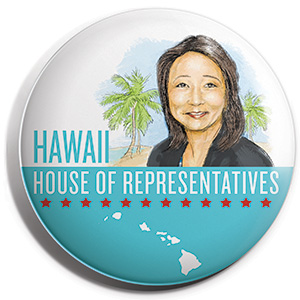
Sylvia Chang Luke
Member, Hawaii House of Representatives
Sylvia Chang Luke JD ’95 holds an influential position in Hawaii’s state government—chair of the Hawaii House Finance Committee, which recently passed a budget of $23.2 billion for the next two fiscal years.
Some are tempted to keep budget details to themselves and use them as leverage. Not Luke. She says she shares this information freely with her fellow legislators, believing it helps them achieve more and also helps more Hawaiians.
In the new budget, Luke set aside funds to help address a financial nightmare. Hawaii has underfunded its benefits package for retired state employees for many years and now has an unfunded liability of $30 billion. Pension reforms passed by the legislature are also helping to address the problem.
Luke is also behind an effort that gives local school districts more control over their budget spending.
“It’s a privilege to be elected by your community, to represent their views of what’s important,” Luke says. “It’s the notion that you can make a small difference now that’s going to have a huge impact in the future.”
Luke has served in Hawaii’s House of Representatives for 17 years, juggling her elected work with that as an attorney with the law firm Cronin, Fried, Sekiya, Kekina and Fairbanks.
At USF, Luke appreciated the emphasis on giving back. “It was pretty evident from the very beginning that USF really stood not just for graduating lawyers who are going to work in the corporate world. There is (also) a sense that you have to give something back to the community, a sense of civic responsibility.”
That message was reinforced at home. “My mom instilled in me that we need to stand up for the rights of people who don’t have a voice in the community, or people who don’t have the strength to stand up for themselves,” Luke says.
“It’s that sense of looking out for others that I carry in myself to this day, that willingness to help others. I carry that with me today as I go about the work.”
Area represented: District 25, which includes Makiki, Punchbowl, Nuuanu, Dowsett Highlands, Pacific Heights, and Pauoa.
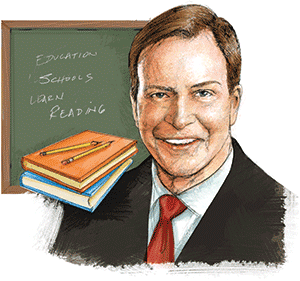
Bill Schuette
Michigan Attorney General
As Michigan’s attorney general, Bill Schuette JD ’79 is responsible for everything from prosecuting corruption to protecting consumers. Now in his second four-year term, his résumé includes a long list of jobs serving Michigan’s public interest: U.S. congressman, state senator, appeals court judge, and director of the state’s agriculture department.
Schuette says an important part of his job as attorney general is to pay attention. “If you listen to the voices of people and understand what they’re experiencing, you can have a huge impact on their lives personally.”
He listened and took action after victims of human trafficking described the horrors they endured. He has made it a priority to identify and prosecute anyone who forces women and children into the sex trade and has created a statewide task force.
Schuette also sought justice for thousands of rape victims whose evidence kits were never processed. In 2009, around 8,700 untested DNA rape kits were found abandoned in a Detroit storage facility, some dating to the 1980s. After his election in 2010, Schuette used $4 million from lawsuit settlements as a down payment to have them analyzed. “When you understand the enormity of the situation, there is no other responsible act,” he says.
With additional money from other private and public sources, the testing was completed this year. As a result, at least 87 serial rapists were identified.
“At USF, I had a very grounded sense of both the academics and social responsibility,” Schuette says. “That social responsibility aspect rounds you out.”
He describes his USF legal education as first-rate and says he appreciated its emphasis on doing the right thing. He says two professors in particular had a strong effect on him: Dede Donovan, who taught him criminal procedure, and Paul McKaskle, who taught him civil procedure.
“It’s always been about service,” Schuette says. “I like helping people. It’s my way of contributing and giving back. If you were to sum up my motivation, that would be it.”
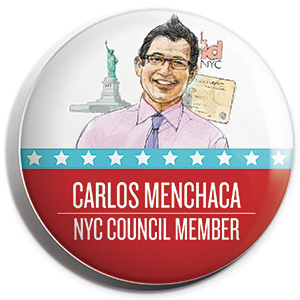
Carlos Menchaca
New York City Council Member
After Hurricane Sandy hammered his Brooklyn neighborhood, Carlos Menchaca ’04 helped organize the clean-up. That’s when he discovered something much larger than his neighborhood needed fixing: “I saw a real need for change in government, in its tone, its response, its ability to connect to the local community,” he says.
Part of that change was Menchaca himself. His election in 2013 made him the first Mexican American to become a member of the New York City Council and also made him Brooklyn’s first openly gay legislator. He represents an industrial area of Brooklyn that has a large Chinese and Latino immigrant population and where about two-thirds of the residents live in public housing.
Many of them are undocumented, and Menchaca authored legislation that created New York City’s first municipal identification card program, which gives undocumented workers an official ID and access to many city services and some banks. The initiative was stunningly popular—more than a quarter of a million people applied for the card in the first eight weeks after the program launched this January.
Menchaca credits his USF education with helping him to develop a strong focus on inclusion and consensus building. Earlier this year, district residents, regardless of immigration status, voted on how to spend $2 million earmarked for community improvements. Voters chose from among 14 community-identified projects, such as planting new trees across the district and repaving paths at a local park.
“It’s not only the Jesuit values of men and women for others, but it’s also that commitment to seeking social justice,” Menchaca says. “It was at USF that I understood the importance of being a smart and thoughtful leader. It gave me a real sense of purpose for leading in a way that brings in intelligence, thoughtfulness, and values. It also taught me the value of organizing, and that it wasn’t enough just to be angry. We had to do something that brought more people together.”
Area represented: District 38, which covers parts of Brooklyn, including Sunset Park, Red Hook, and parts of Windsor Terrace, Bensonhurst, and Borough Park.
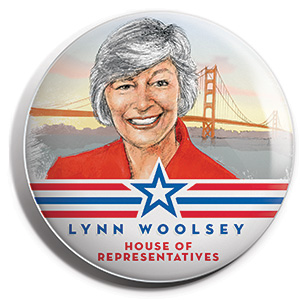
Lynn Woolsey
Member, U.S. House of Representatives (Retired)
As Lynn Woolsey ’81 reflects on the two decades she spent in Washington, D.C., representing California’s 6th Congressional District, she says one accomplishment stands out—the National Maritime Sanctuary established along the Sonoma Coast. The designation protects the coastline from oil drilling and other activities.
“It’s my legacy, there’s no question about it,” says Woolsey, who retired in 2013. “Our coast is one of the most pristine, one of the cleanest, one of the most abundant for flora and fauna in the world. It needed to be protected.”
She’s no longer in Congress, but Woolsey is plenty busy championing causes. She is president of Americans for Democratic Action, an umbrella organization for progressive causes, and she serves on boards throughout the North Bay. She’s also helping expand literacy in Sonoma County as part of a start-up program.
Her success wasn’t a sure bet. Woolsey left college after two years to marry and later found herself struggling as a single mother with no college degree. When her children were teenagers, she decided to return to college and chose USF. That decision, she says, made her run for Congress possible.
“It would have been very difficult to not have at least a bachelor’s degree. It gave me the credential that made me feel more solid and more confident,” Woolsey says.
But one class at USF worried her—statistics, because of the math involved. Ultimately, it taught her that a big challenge can make you stronger.
“Our professor was really good,” Woolsey says. “So I thought, ‘Well, OK, I can do this.’ That gave me a new confidence in my abilities because I didn’t shy away from anything that had to do with math. When I got to Congress, I was the first freshman ever appointed to the Budget Committee. I don’t think I would have ever applied for that position had I not had the education from USF.”
Woolsey served for two decades on what is now called the Education and the Workforce Committee. “I stayed for 20 years, because I knew—and certainly USF was part of my knowing this—how important an education is and how important it is for our democracy to have an educated public.
“About halfway through my career, I could have gone on the Appropriations Committee, which is one of the big-money committees, but I chose not to. I wanted to stay on a committee that makes policy. It helped that I was educated to know some of the values of this world we live in that make a difference to all of us.”
Area represented until retirement: 6th Congressional District, which includes Marin County and most of Sonoma County.
